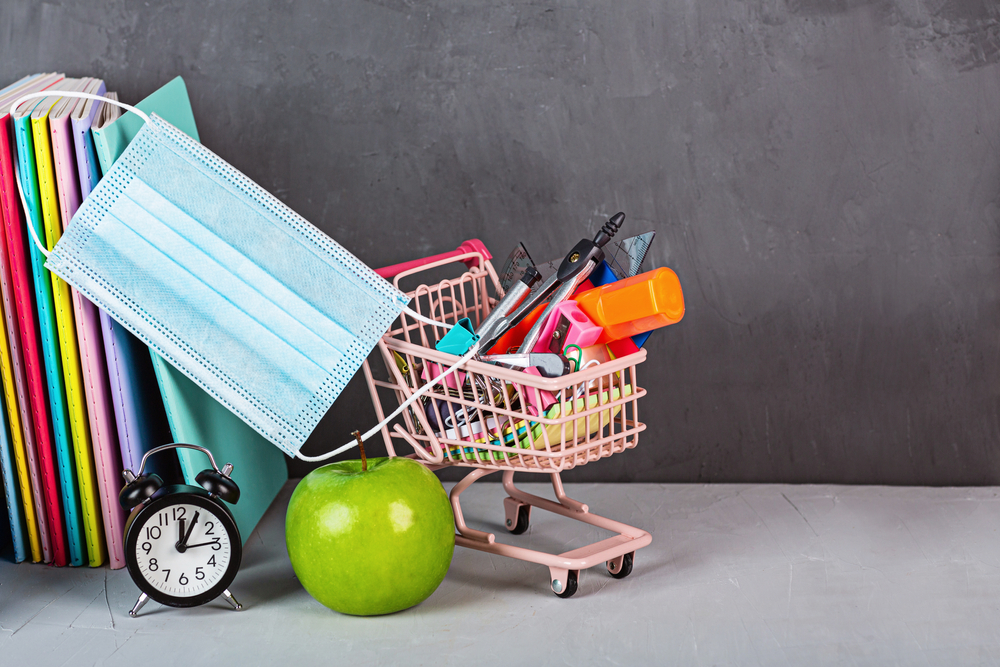The Back to School Blues Are Real But We’ve Got 10 Useful Tips That Will Help You To Get Ready
by Carolyn Lee Aug 1, 2022

You’ve had a summer of spending more time with your children, bonding with them, and enjoying fun moments. Now that the summer break is almost over, it’s time to focus on what they will need for the new school year. It is normal to feel apprehensive about back-to-school planning. Your children may also be anxious. We’d love to help by sharing a few valuable tips and reminders you can use to get ready.
Pay attention to your budget.
Textbooks, tuition, uniforms, and electronics are some expenses associated with back-to-school shopping. So, you must include some of these expenses in your budget early. If you use a taxi service, school bus, or school lunch system, add those expenses to your budget so you have a clear idea of your overall back-to-school expenses. Look at the areas where you can save money. It may be more cost-effective to have some uniforms altered by a tailor than to purchase new ones they may not need. Also, audit what your child needs instead of what they would like to help eliminate unnecessary spending.
Start back-to-school shopping early.
Some back-to-school deals start early, so it’s a good idea to check your local bookstores, electronic stores, and supermarkets for what your child will need. Look for second-hand books in excellent condition, especially if your child will use them for a semester only. Examine the books your child will no longer use and sell them at a discounted cost or offer them to other children if you don’t have younger children who will need them.
Talk to your child about expectations.
Discuss expectations with your children and guide them in setting goals for the new school year. Talk to them about their academic performance from the previous term and what they hope to accomplish in the new one. You will know what they may be anxious about or excited to do by talking to them. It’s also helpful to encourage your children to develop an interest in leadership roles that will make them more responsible (prefect, class monitor, etc.).
Help your children to get organised before the term begins.
Make a date with each child to check books, stationery items, uniforms, shoes, and relevant paperwork (reports, awards, etc.) from the previous term. This audit lets you see what you can use for younger siblings, dispose of, or give away. Another benefit of this audit is that it creates space for the new items needed in the upcoming term. Parents can also help young children organise their study desk/area, so they can feel comfortable while they do school or homework.

Ease children into the back-to-school routine a week or two early.
During the summer, most children were allowed to stay up later or sleep longer in the mornings. They also used their free time to play electronic, outdoor, and indoor games. To help reacclimate them to school routines, consider earlier bedtimes, less time on devices, and an alarm to help with waking up on time in the mornings, at least a week before the new term starts. As a parent, you must prepare and function as though they are already back in school. So, during your morning routine, try to have breakfast done to coincide with the school schedule. Also, include schoolwork in their daily routine and check to ensure the work is completed when you get home.
Connect with teachers and talk to parents in your circle.
Your child’s teacher from the last term might have a few tips you can use to help prepare your child for the new school year. Also, it’s wise to meet with their new teachers, so you know each other. You can share information on your child and expectations, and their new teachers can field any questions you may have about the upcoming term. Talking to the parents in your circle can give you an idea of how their children feel about the new term or books they might have but no longer use that your kids may need. You can also start planning a carpooling schedule with parents in your circle.
Talk to your children about safety.
Most children re-entered the physical classroom in the last term and are acquainted with safety measures. Despite this, you should still talk to your child about safety and include tips to preserve their health (COVID-19 safety measures), awareness of their surroundings, and where they can go to get help at school if needed. You must ensure that teachers have access to your contact information and the best ways to get in touch with you in an emergency.
Plan lunch meals with your kids.
Meal planning for your child’s lunch can be tedious and expensive. Also, some children may prefer to purchase lunch instead of having what you made for them. Including kids in your meal planning is a good idea, so you don’t waste time, food, or money. If your child’s school offers paid lunch, you can focus on giving them healthy snacks to take with them to school. If your child prefers you to make lunch, let them help choose some foods they want you to include when planning their weekly lunch menu. Collaborating with your kids on their lunch preferences is an excellent way to bond with them. It also allows you to catch up on what’s going on in their lives.
Take your child to the doctor before the term starts.
Some parents take their child to the doctor before the new term starts. This medical check-up helps to assess the child’s physical and mental development or other health-related concerns. If your child has asthma, allergies, paediatric eye problems, or other underlying health issues, their paediatrician will let you know if their prescription needs updating. You can also ask for advice on what to do if there are medical emergencies while your child is at school.
Ask for help.
Planning for back-to-school can be stressful, so ask for help. Older children can help with lunch prep, house chores, and ensuring their siblings do schoolwork in your absence. Your network of friends, teachers, or parents can provide helpful tips that help them manage and prepare for back-to-school. It’s crucial to pace yourself and stick to the school budget you created. Also, try to avoid taking back-to-school loans unless you need them. Most loans have high-interest rates and can create an additional financial burden.
We hope these tips and reminders help. You can find paediatricians, bookshops, supermarkets, and related businesses with ease when you use our Find Yello listings. Good luck!
Sources: NSW Government, Prahtiba International School, and JBCN International School.








